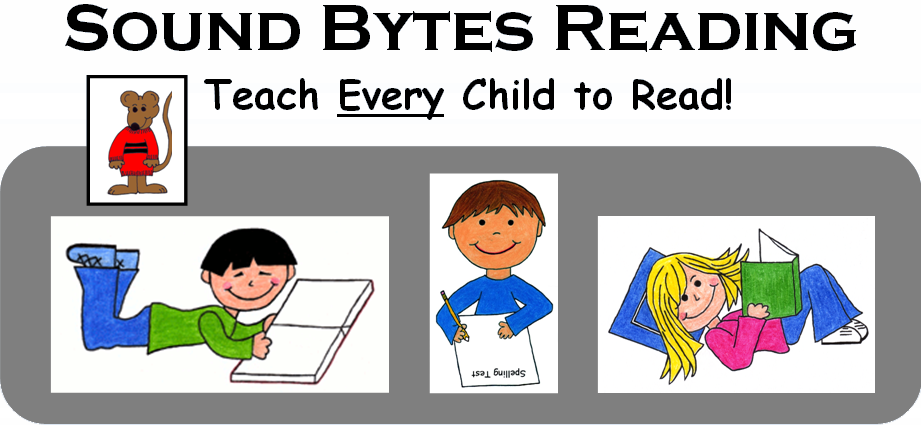Sound Bytes Reading: Top Ten Blogs in 2013—Part 1

1 - All Students Reading at Grade Level by the End of Third Grade?
The goal: Every child reading on grade level by the end of third grade? No! The goal should be: Every child reading on grade level by the end of first grade! With this goal in mind, we must use effective research-based reading interventions as soon as we see children start to fail—before the end of first grade—and before they have fallen so far behind their peers that many of them will never catch up at all. Teach every child to read by the end of first grade! Read more: http://bit.ly/145VDFK
2 - Spelling for Beginning Readers – Part 2
This blog is part of a series on spelling. It includes a game to help your children learn to spell. Beginning readers often ask us how to spell words they want to write. When students ask you to spell words, you can help them develop phonemic awareness by telling them the sound of each letter in the word as they write instead of telling them the names of the letters. This is what phonics is about—learning to associate letters with speech sounds rather than learning words as a whole unit. The more we use the sounds associated with the letters the more quickly students will remember them and use them when trying to spell words. Read more: http://bit.ly/VFdeTD
3 - Spelling for Beginning Readers – Part 3
Spelling is an important part of learning to read. Learning to spell helps students learn to read and reading phonetically can help students learn to spell. If you give your beginning students word lists that have consistent spelling patterns, they will learn to spell much more quickly and they will not forget what they have learned. Read the blog here: http://bit.ly/Wj1UJV
Get the FREE Spelling Game for beginning readers here: https://soundbytesreading.com/assets/files/Spelling-Game-for-Beginning-Readers.pdf
4 - Five Spelling Tips for Teaching Beginning Readers
Our brains are designed to recognize patterns that make sense. For beginning or struggling readers, learning that is based on consistent patterns will make reading and spelling new words much easier. Here are five tips to help you teach spelling. Read more: http://bit.ly/11TpQcL
5 - Should You Continue to Read Aloud to your School Age Children?
Reading books that are above your children’s reading level will help to increase their vocabulary. Even though they can read for themselves, older children enjoy having longer stories read aloud to them. Get the book list and read more here: http://bit.ly/ZlKWw
Next week: Part 2
